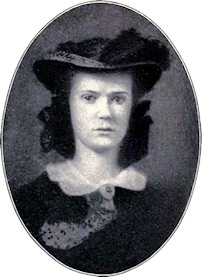August 23d.
Yesterday Anna and I spent the day with Lilly, and the rain in the evening obliged us to stay all night. Dr. Perkins stopped there, and repeated the same old stories we have been hearing, about the powder placed under the State House and Garrison, to blow them up, if forced to evacuate the town. He confirms the story about all the convicts being set free, and the town being pillaged by the negroes and the rest of the Yankees. He says his own slaves told him they were allowed to enter the houses and help themselves, and what they did not want the Yankees either destroyed on the spot, or had it carried to the Garrison and burned. They also bragged of having stopped ladies on the street, cut their necklaces from their necks, and stripped the rings from their fingers, without hesitation. It may be that they were just bragging to look great in the eyes of their masters; I hope so, for Heaven help them if they fall into the hands of the Confederates, if it is true.
I could not record all the stories of wanton destruction that reached us. I would rather not believe that the Federal Government could be so disgraced by its own soldiers. Dr. Day says they left nothing at all in his house, and carried everything off from Dr. Enders’s. He does not believe we have a single article left in ours. I hope they spared Miriam’s piano. But they say the soldiers had so many that they offered them for sale at five dollars apiece! We heard that the town had been completely evacuated, and all had gone to New Orleans except three gunboats that were preparing to shell, before leaving.
This morning Withers’s battery passed Mr. Elder’s on their way to Port Hudson, and stopped to get water. There were several buckets served by several servants; but I took possession of one, to their great amusement. What a profusion of thanks over a can of water! It made me smile, and they smiled to see my work, so it was all very funny. It was astonishing to see the number of Yankee canteens in the possession of our men. Almost all those who fought at Baton Rouge are provided with them. In their canvas and wire cases, with neat stoppers, they are easily distinguished from our rough, flat, tin ones. I declare I felt ever so important in my new situation as waiting-maid!
There is very little we would not do for our soldiers, though. There is mother, for instance, who got on her knees to bathe the face and hands of a fever-struck soldier of the Arkansas, while the girls held the plates of those who were too weak to hold them and eat at the same time. Blessed is the Confederate soldier who has even toothache, when there are women near! What sympathies and remedies are volunteered! I always laugh, as I did then, when I think of the supposed wounded man those girls discovered on that memorable Arkansas day. I must first acknowledge that it was my fault; for seized with compassion for a man supported by two others who headed the procession, I cried, “Oh, look! he is wounded!” “Oh, poor fellow!” screamed the others, while tears and exclamations flowed abundantly, until one of the men, smiling humorously, cried out, “Nothing the matter with him!” and on nearer view, I perceived it was laziness, or perhaps something else, and was forced to laugh at the streaming eyes of those tender-hearted girls.
